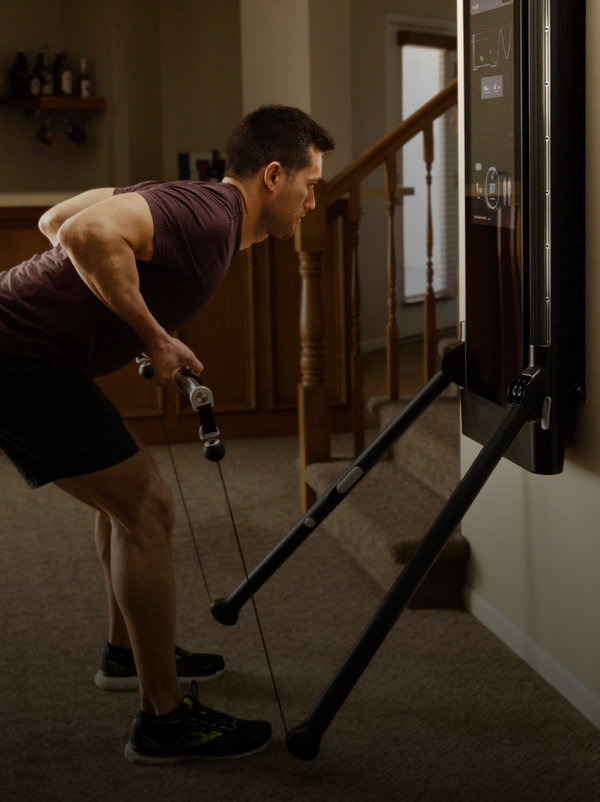
“
Tonal has endless options as far as moves you can do. It’s very flexible and adaptive to what I wanted to achieve. I wasn’t leaving anything on the table at the end of these workouts.
John S.

Tonal learns your strength and sets the optimal resistance for every rep, increasing in as little as one-pound increments to keep you challenged as you get stronger.

Science-backed workouts with real-time guidance help you train safely and maximize your effort.
Tonal membership does more than level up your routine—it delivers thousands of on-demand classes and the expertise of a personal trainer to everyone in your household for just $59.95*/month.
*Plus applicable tax. 12-month initial commitment required.
**This annual calculation is based an estimated cost of attending two personal training sessions of $90/session and two studio classes at $55/class per week.
Each Tonal purchase requires a 12 month commitment of $59.95/month plus applicable sales tax. Membership required for most features.

Each membership comes with unlimited accounts, so everyone in your house can tap into a personalized training experience.

Fast-track your fitness results and build muscle up to 2x faster with advanced lifting modes like Drop sets that automatically adjust the weight, so you never have to re-rack.

Whether you’re just getting started or experienced with strength training, Tonal has something for every member to hit their goals.
“This is *the* smart home gym setup worth investing in due to several features that other smart gyms don’t have."

“It’s the first piece of digital weight training equipment I’ve used that makes improving your performance easy.”

"Tonal 2 Has Finally Made Me Like Strength Training"

"I'm a Trainer and Tonal 2 Is the Best At-Home Fitness Machine I've Tried"

"Best Smart Home Gym: Tonal 2"

"Tonal 2 Has Finally Made Me Like Strength Training"

"Tonal has been a life changer! Easily the single greatest investment I've ever made"

"I've been using this machine consistently since I got it. There are many excuses to not work out, so it's nice to eliminate the convenience excuse by having it in your house"

"It has always been my goal to workout regularly with a personal trainer. With Tonal, I feel like I've finally got my wish. A personal trainer on demand. Tonal, where have you been all my life?"
*Truemed is for qualified customers. HSA/FSA tax savings vary. Learn more at truemed.com/disclosures